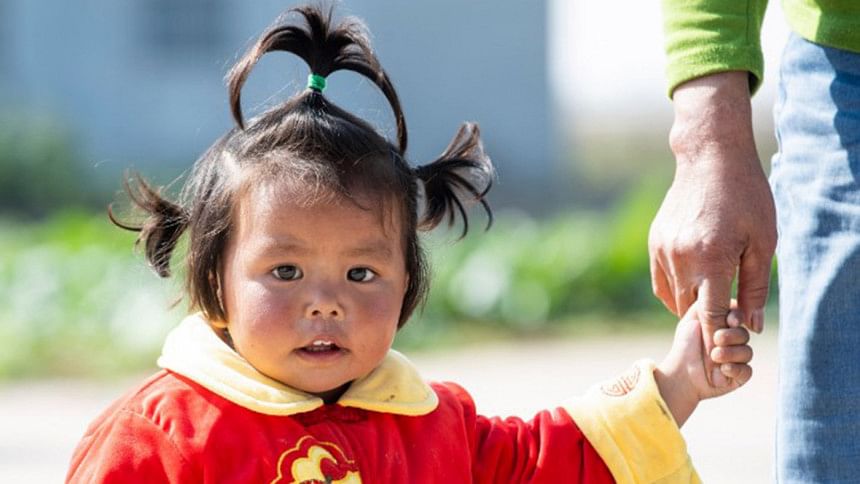Support for bigger families fresh priority in China

More measures should be employed to encourage couples to give birth to a second child, while existing family planning policy should be further relaxed, population experts suggested amid expectations of further declines in the number of births in China.
"A series of policies to support the universal second-child policy should be rolled out to address concerns of couples who want to have a second child," said Yuan Xin, a professor of population research at Nankai University.
Zhai Zhenwu, a population studies professor at Renmin University of China, said authorities need to make more efforts to build a birth-friendly society, such as opening more nursery facilities and kindergartens which are lacking in China, extending maternal leave and providing basic subsidies to couples having a second child in order to prevent birthrates from declining further.
The universal second-child policy, which was adopted in 2016 to counter problems such as a dwindling workforce and an aging population, resulted in the number of births reaching 17.86 million that year, the most since 2000. But the total fell by more than half a million in 2017, according to the National Bureau of Statistics.
The number of births fell further to 15.23 million last year, according to the bureau.
A report released by the Chinese Academy of Social Sciences in early January showed that the universal second-child policy contributed to an increased birthrate in China over the past few years, but its impact has not been as effective as expected.
China's population will peak and start to decrease in 2027 if the fertility rate - the total number of children a woman gives birth to in her lifetime on average - remains at the existing level of around 1.6, the report said.
Zhai said the number of births in China will continue to fall over the next few years.
"The number of women of child-bearing age in China is decreasing by between 5 million and 6 million a year," he said. "Even if the birthrate remains unchanged, the number of births will continue to fall."
Tao Tao, an associate professor in population studies at Renmin University of China, said many surveys have shown people have concerns about raising children, which discourages many from trying for a second child.
"What they want are related economic and social policies addressing issues including housing, women's working rights, taxation, maternal leave and nurseries," she said.
"Authorities need to establish a family-friendly policy system to help more families resolve difficulties in childbirth and raising children."
Yuan said the family planning policy, which now allows all couples to have a second child, should be further relaxed so that people will have the right to determine how many children they have.
"But before further relaxation, it is necessary to conduct thorough surveys and research to be certain how many people, and who, will give birth to third or even fourth children," he said.
In many developed countries, people from the poorest classes usually have the most children, so if the case is the same in China after further relaxation of the family planning policy, it will cause difficulties in helping lift people out of poverty, he said.
Zhai said further relaxation of family planning policy is the current trend which will allow more families the right to decide how many children they want to have.
"But even if the policy is relaxed to the degree that every couple is allowed to have four or five children, it will not change the overall trend that births in China will continue to decrease in the long run," he said. "Many people now do not want to give birth to a second child, so who will give birth to more?"
With the development of society and the economy, people will be less willing to have more children, which is something seen around the world, he said.

 For all latest news, follow The Daily Star's Google News channel.
For all latest news, follow The Daily Star's Google News channel. 



Comments